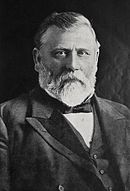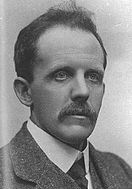New Zealand general election, 1905
|
|
|||||||||||||||||||||||||||||||||||||||||||||||||||||
|---|---|---|---|---|---|---|---|---|---|---|---|---|---|---|---|---|---|---|---|---|---|---|---|---|---|---|---|---|---|---|---|---|---|---|---|---|---|---|---|---|---|---|---|---|---|---|---|---|---|---|---|---|---|
|
|||||||||||||||||||||||||||||||||||||||||||||||||||||
|
|
|||||||||||||||||||||||||||||||||||||||||||||||||||||
|
All 80 seats in the New Zealand House of Representatives 41 seats were needed for a majority |
|||||||||||||||||||||||||||||||||||||||||||||||||||||
| Turnout | 83.3% | ||||||||||||||||||||||||||||||||||||||||||||||||||||
|
|||||||||||||||||||||||||||||||||||||||||||||||||||||
|
|||||||||||||||||||||||||||||||||||||||||||||||||||||
The New Zealand general election of 1905 was held on Wednesday, 6 December in the general electorates, and on Wednesday, 20 December in the Māori electorates to elect a total of 80 MPs to the 16th session of the New Zealand Parliament. A total number of 412,702 voters turned out, with 396,657 (83.25% of the electoral roll) voting in the European electorates.
The 1903 City Single Electorates Act declared that at the dissolution of the 15th Parliament, the four multi-member electorates would be abolished and replaced each with three single-member electorates. It was also the year absentee voting was introduced for all electors unable to be in their own electorate on election day. The first Chief Electoral Officer was appointed.
Accordingly, the multi-member urban electorates of City of Auckland, City of Christchurch, City of Dunedin and City of Wellington were abolished and replaced with the following single-member seats:
Nine of these twelve electorates had existed before. Wellington Central, Wellington North, and Dunedin North were established for the first time.
In 1905 a progressive faction within the Liberal Party started to form in opposition to Liberal leader Richard Seddon's policies. They announced that they would stand in the election as the New Liberal Party, however an accusation against Seddon's son, when disproven saw most of the dissidents return to the Liberal Party, and of the four New Liberals (George Laurenson, Francis Fisher, Harry Bedford and Tommy Taylor) that stood in the election only Laurenson and Fisher were returned.
...
Wikipedia



